

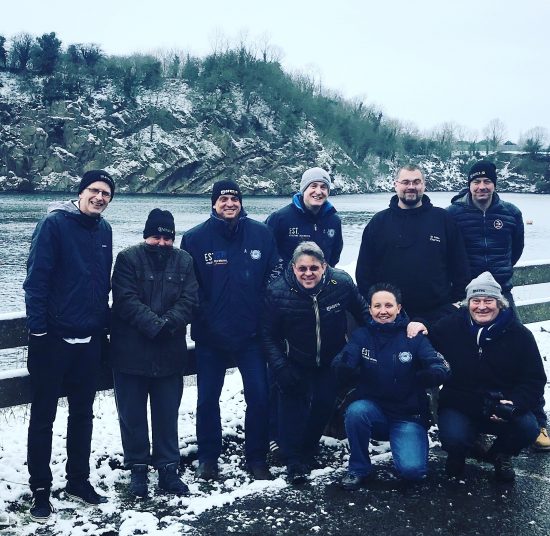
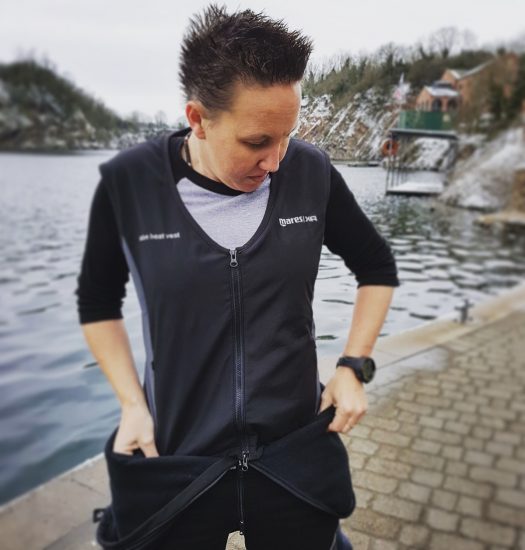
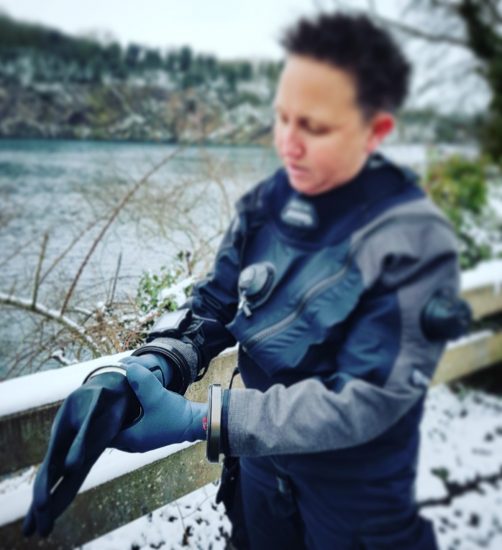
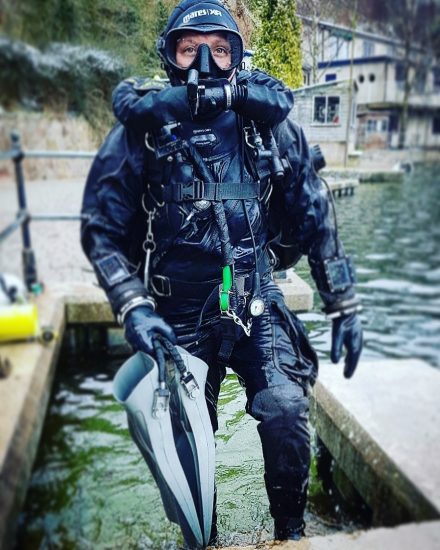
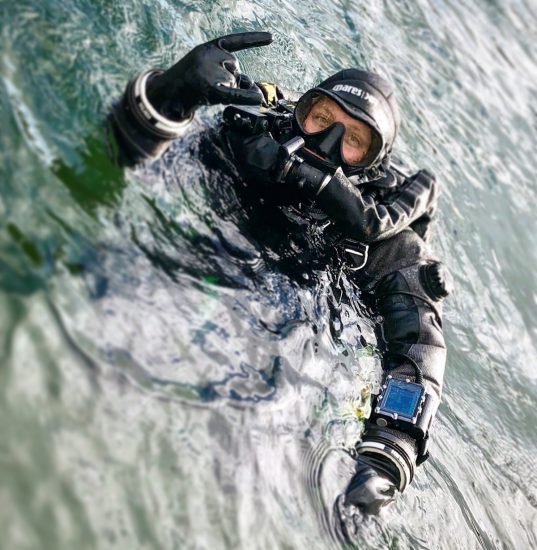
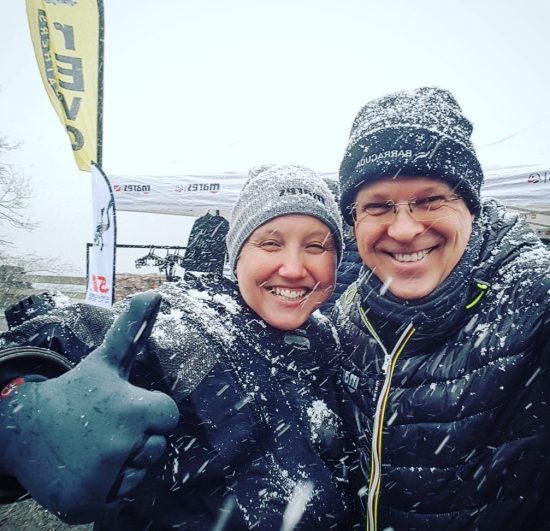
There are so many things about the diving industry that on a daily basis remind me that my career choice was the right one. I am privileged to be able to witness the aftermath of historical sea battles or awe-inspiring marine life interactions, but on top of that, I am reminded that there is always more learning to be done.
Having been based in Egypt for 16 years, diving and teaching in the warm clear waters of the Red Sea, I would be confident to say that I do have a good level of diving experience. The Oxford English dictionary defines 'experienced' as somebody who is “wise or skilful in a particular field”. It was then quite a turn around for me recently to find myself in a diving environment where I was the most in-experienced diver in the group! Experience, as the definition states, is relative to a “particular field” or in my case a particular "environment".
The UK is currently experiencing some rather cold conditions, so instead of the spring time flower blooms we have had snow blizzards! This adverse weather conditions happened to coincide with a rebreather event that we were hosting.
The reality set in for me when a colleague of mine from the UK sent me a very kind message to inform me that the inland site we would be using for the event, “Stoney Cove”, currently has a temperature of 4°C. Alarm bells immediately went through me. The coldest water I had had dived in previously was around 14°C and that was literally only once or twice, but 4°C, this was completely uncharted waters to me!
Anxiety in divers going into a new environment is common and expected but if I am honest, I thought in my diving career I had gone beyond those days but yet I found myself becoming increasingly wary. I was not afraid of the actual temperature, but as a diving professional there is a certain level of performance that we demand from ourselves and it was more that I was concerned that my personal performance was going to be affected. My amazing colleagues from Mares and SSI not only were incredibly supportive but of course also found great pleasure in “winding me up” more! The end result was I needed to address this growing anxiety before it reached a negative level.
Whenever somebody is anxious it is important to pin down what is causing that to occur. Usually there are stress factors. In my case I managed to identify that the stress factors were directly linked to equipment and that maybe mine was not suitable for such cold temperatures.
As a warm water diver and only recently spending more time back in Europe my body has simple not acclimatized to the colder environment both in and out of the water, my core body temperature taking the hit on most occasions. So, objective number one, I needed to find a way to keep my core body temperature stable. Technology over the years in the development of heated under garments has grown incredibly. I decided to source the Mares XR Active Heat Vest to wear under my Mares Extreme Undergarment.
The vest provides heat to the back kidney area and to each side of the chest in order to give a feeling of complete warmth to the upper body. The standard battery has a charge level and battery level indicator with 4 warmth settings providing heat from 2 - 5 hours. Wearing this vest was a huge game changer for me and already I could feel my anxiety levels reducing.
The next issue I had to confront was the concern for my loss of dexterity in my fingers. My 5mm neoprene gloves were simply not suitable for such temperatures. It was at this point that one of my colleagues suggested I wear dry-gloves. As much as I knew that this probably is better, I was quite wary as I had never dived with dry-gloves before. On one hand they would keep my fingers warmer but on the other hand I had heard nightmare stories that you also lose even more dexterity, so would it actually be beneficial in this case? It was suggested that I find a balance, to wear a dry-glove with a thinner neoprene inside glove. This then giving me the cold water protection by keeping the hands dry, but with the thinner neoprene inside still enabling me to have quite good mobility. Upon agreeing to this, my Mares XR Kevlar drysuit was very quickly and easily fitted with the dry-glove system. I was super impressed!
Armed with my toasty heated vest on full power, my hands now sealed in dry-gloves, I was ready to face the conditions. Upon entering the water I was pleasantly surprised that it was not the “daggers to the body” feeling that I had been preparing myself for. Don’t get me wrong it was still cold, but cold in a much more manageable way. The dives all went well and once into my comfort zone of diving I was happy and content. For sure it will take time and more experience to build up the duration of time on each dive but for now I was happy with what was achieved.
Correct and appropriate equipment choice for diving is an integral part of diver training at all levels and something the SSI student materials dedicate time to. Owning your own personal equipment suitable for your diving environment is critical in terms of comfort and anxiety.
It does not matter how experienced a diver you consider yourself to be, we are all only as experienced as the conditions we dive in the most frequently.
 Cat
Cat 22nd March 2018
22nd March 2018 Stoney Cove, Leicester, UK
Stoney Cove, Leicester, UK 